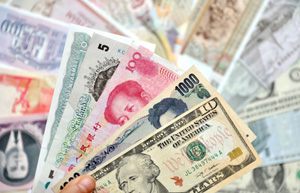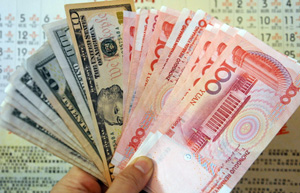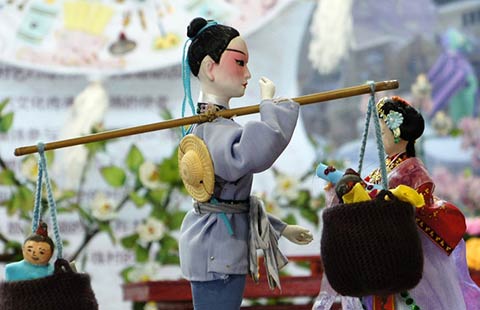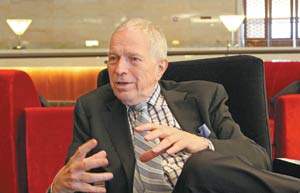Yuan's rise will help global stability
By Cecily Liu (China Daily) Updated: 2014-08-04 07:00
|
 Editor Alan Wheatley says Chinese trade continues to grow, the yuan will raise its regional profile. Cecily Liu / China Daily |

The rise of the Chinese currency to challenge the dollar's dominance has global geopolitical implications, says Alan Wheatley, editor of the 2013 book The Power of Currencies and Currencies of Power.
As an increasing number of countries boost their trade and investment ties with China using the yuan, they will take an increasing interest in the growth of the Chinese economy, he says.
For example, earlier this year, Reserve Bank of Australia Deputy Governor Philip Lowe said his country's central bank plans to invest about 5 percent of its foreign currency reserves in yuan.
"This means that Australia has an increasing interest in China and wants it to do well, because Australia would have some interest in the strength of the Chinese currency," Wheatley says. "Nobody wants to own an asset that cannot be used anywhere."
In practical terms, China would then have more clout when asking Australia to open its market, approve plans for a mining company in Australia or take other actions to benefit China.
Wheatley, a former Reuters journalist who covered economics, took an interest in currency as a result of writing about watershed moments in the currency world, including the Plaza Accord agreement to devalue the dollar in 1985 and the introduction of the euro in 1999.
These historical events made Wheatley curious about the power of currency and prompted him to think deeper about the connection between the financial power of currency and the political power of the country behind a currency.
One big focus of his book is how the United States historically has leveraged its power to achieve its political agenda.
For example, the US invasions of Iraq and Afghanistan were financed by the dollar money supply.
This is because countries like Iraq and Afghanistan receive dollars as payment for their exports, so they exchange goods for dollars, the commonly accepted global reserve currency, and effectively, at least in part, funded their own invasion, Wheatley says. "In order to obtain dollars then, Iraq has to export something physical, something real and something important," says Wheatley.
The dollar's status as a dominant currency was built up over more than two centuries of credit records, dating back to the insistence of the first US secretary of the treasury, Alexander Hamilton, that the US government had to honor debts owed to private citizens of countries with which it was at war.
The dollar continued to grow in importance and became the dominant world reserve currency after World War I. After World War II, this was further cemented because the dollar became convertible into gold through the Bretton Woods negotiations in 1944.
Today, because the demand for the dollar is so strong, the US has been able to finance big deficits on its current accounts, whereas any other country deeply in debt might be forced by financial market pressure to cut spending and raise taxes, Wheatley says.
|
 |
 |
| RMB to be third largest international currency by 2020 | RMB will cash in on growth |
- China's non-manufacturing PMI retreats in July
- Building momentum in Gabon
- High-end trucks set to take bigger share
- Auto sales expected to hit 50m
- Junk food craving intensifies as Western restaurants proliferate
- Promoting the modern Mersey beat
- Libreville, a magnet for both State-owned, small companies
- 10 Chinese cities that lifted property curbs in July














